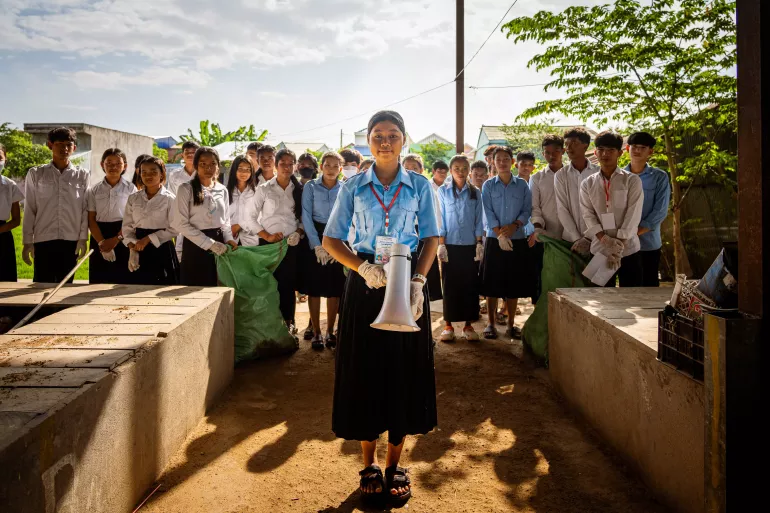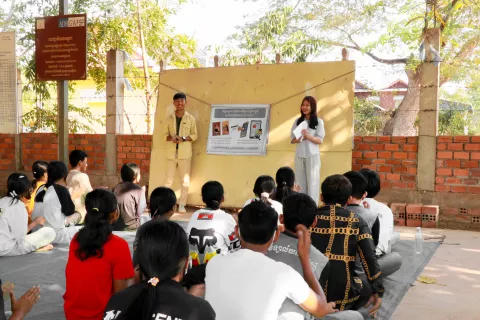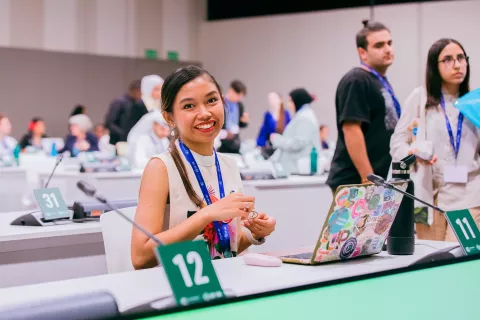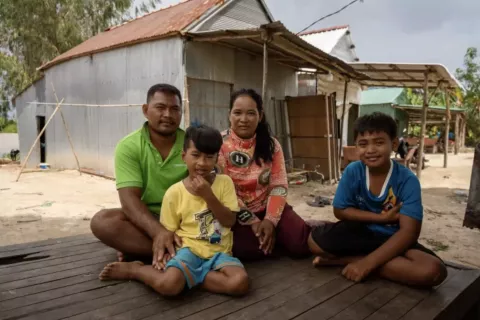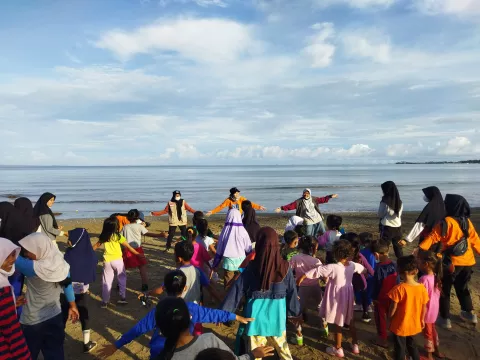“I surprised myself,” says Nita, 17. She’s standing in front of a group of 20 students, running through the basics of waste reduction and recycling. “I never thought I’d be able to stand up and speak publicly about the environment.”
Nita attends a public school in Takeo province which is aiming to become zero-waste. This isn’t a small feat in Cambodia, where roadsides are strewn with pink and blue plastic bags, plastic forks stick out from bushes, and lollipop wrappers are trampled into dirt paths.
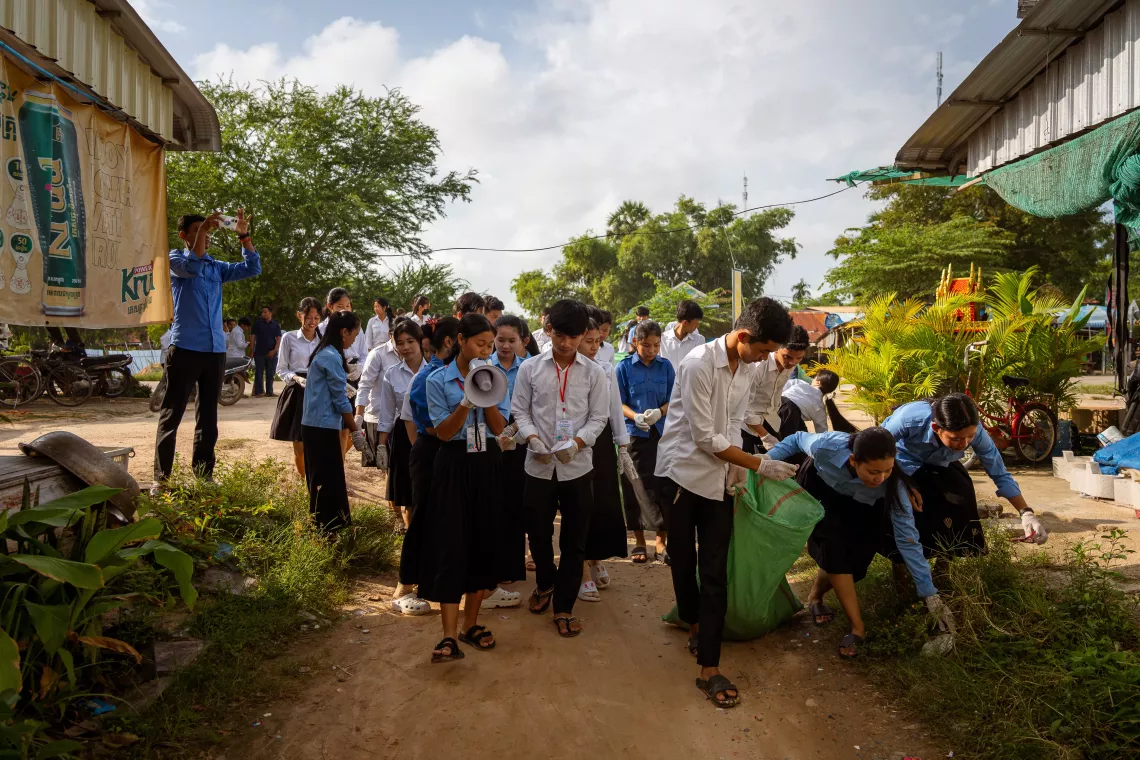
“Having trash everywhere isn’t good for our health,” she says, explaining how trash attracts pests like rats and flies and how plastic enters food and water. “It also isn’t good for the soil, and we need the soil to grow rice. So a group of us set out to find out what’s causing all the trash in our communities, and find solutions.”
The Sok An Daungkpus Bourei Cholsar School she attends is just a few kilometers away from a Mekong tributary, a precious source of water for farmers growing rice in the fertile, bright green paddies nearby. But the Mekong Delta as a whole is becoming increasingly polluted and contaminated, with 37,000 tons of plastic running through its waterways every single year. The spike in plastic pollution is in part a reflection of modernization and the ready availability of packaged snacks and sugary drinks.
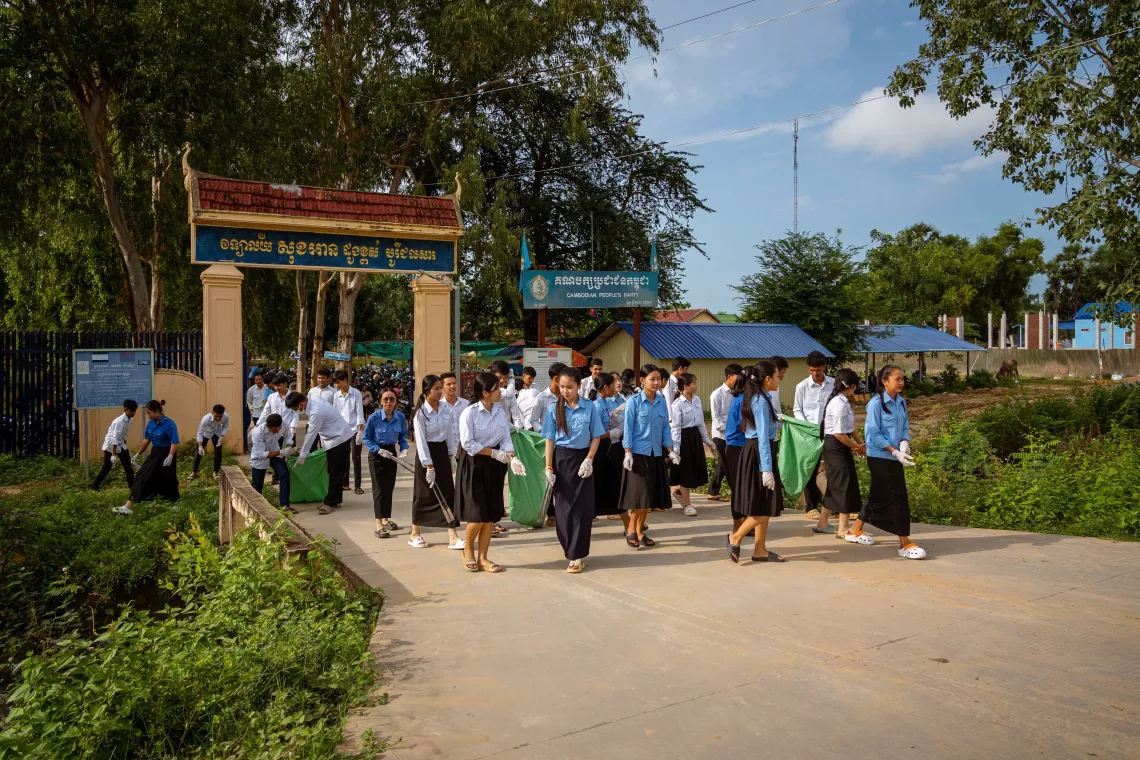
“The first issue we found is that there’s no place to recycle,” Nita shares. “But the other issue is people’s behavior. They don’t see a problem with tossing a plastic bag onto the ground - they think it’s a little thing.”
Cambodia ranks in the top third of countries for children's exposure and vulnerability to climate change and environmental shocks, with Cambodian children highly exposed to water scarcity, river flooding and vector-borne disease. Like many young people in the country, Nita and her fellow students are worried about their future and have decided to play their part by helping to collect trash, raise awareness about recycling, and encourage their family, friends and neighbors to reduce their use of plastic.
“There’s been a drastic reduction in the amount of trash in school,” says Nita. “We try to bring reusable bags to school. We even have penalties for those who bring trash into school!”
UNICEF has been supporting Nita’s school with life skills education for years, and introduced climate change and environment education in 2022 to support children like her with the skills and knowledge they need to understand and help tackle issues like pollution. The project is supported by the the Australian Department of Foreign Affairs and Trade (DFAT), the Swiss Agency for Development and Cooperation (SDC) and the Swedish International Development Cooperation (SIDA) has brought climate and environment education to over 25,000 students in Cambodia.
The project hasn’t stopped at the school gate. Once a month, the group of students heads into the community, picking up trash on the way, and spreads their newfound knowledge in their villages, marketplaces and their homes. There has been some pushback, Nita admits, and not everyone is willing to listen to them. But they’re making progress and seeing a difference already.
The project hasn’t just been good for the community and the environment. Teachers and parents have noticed an impact on the students’ self-confidence - especially that of the girls, in a country where women and girls speaking up isn’t common.
“I used to be shy,” says Nita. “But now I even go to the marketplace and approach people I don’t know to share what I know. The reaction isn’t always positive, but I don’t let it discourage me."
Eliane Luthi is Regional Chief of Advocacy and Communication for East Asia & Pacific, UNICEF


